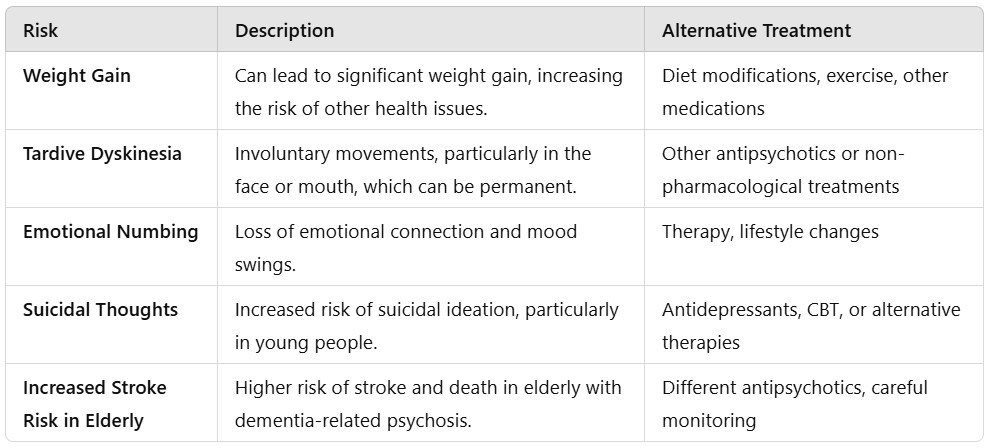Abilify, also known by its generic name aripiprazole, is a commonly prescribed medication used to treat various mental health conditions, including schizophrenia, bipolar disorder, and depression. However, for some individuals, the drug has had a profoundly negative impact, leading to the claim that “Abilify ruined my life.” This article will explore the potential side effects, risks, and real-life experiences that have led some users to feel that the medication has caused significant harm. If you’re considering taking Abilify or are already on the medication, it’s essential to understand both its benefits, potential dangers, and why some claim ‘abilify ruined my life’.
What Is Abilify and How Does It Work?
Abilify belongs to a class of drugs known as atypical antipsychotics. It works by altering the balance of certain neurotransmitters in the brain, particularly dopamine and serotonin, which are involved in regulating mood, perception, and behavior. By modulating these chemicals, Abilify can help alleviate symptoms of various mental health disorders.
For those suffering from schizophrenia, bipolar disorder, or severe depression, Abilify may offer a way to manage symptoms and regain control over their lives. However, despite its widespread use, there are reports from individuals who feel that the side effects of Abilify have had a life-altering, detrimental impact.
The Dark Side of Abilify: Risks and Side Effects
Abilify’s side effects are well-documented, but they can affect individuals in varying degrees. Some users report experiencing only mild discomfort, while others claim that the drug has had life-ruining consequences. The following are some of the most common and concerning side effects:
1. Excessive Weight Gain
One of the most commonly reported side effects of Abilify is significant weight gain. For some individuals, this can lead to other health problems such as high blood pressure, diabetes, and joint issues. The weight gain can be gradual but substantial, which may have long-term physical and emotional consequences, including self-esteem issues and an increased risk of developing other chronic conditions.
2. Uncontrollable Movements (Tardive Dyskinesia)
Tardive dyskinesia is a condition characterized by uncontrollable movements, particularly in the face, mouth, and tongue. This side effect can be severe and permanent, leaving individuals with involuntary jerks or tics that can interfere with everyday life. While not every person taking Abilify will experience tardive dyskinesia, the risk is significant enough that it’s crucial to monitor for symptoms closely.
3. Emotional and Behavioral Changes
Abilify can cause emotional and behavioral changes in some individuals. These might include heightened anxiety, agitation, or mood swings. In some cases, individuals report feeling numb or emotionally detached, as if their personality has been altered. These changes can severely affect relationships and quality of life, leading people to feel that the drug is ruining their existence.
4. Suicidal Thoughts and Actions
Though antipsychotic medications like Abilify are designed to alleviate symptoms of mental health disorders, they can sometimes exacerbate feelings of depression, leading to suicidal thoughts or actions. According to the U.S. Food and Drug Administration (FDA), antidepressant medications like Abilify have been associated with an increased risk of suicidal thoughts and behaviors, particularly in younger individuals. This is a critical risk factor for anyone considering this medication.
5. Increased Risk of Stroke and Death in Elderly Patients
For elderly patients, particularly those with dementia, the use of Abilify may increase the risk of stroke and death. This population may be more vulnerable to the drug’s side effects, and as a result, the FDA issued a boxed warning about its use in elderly patients with dementia-related psychosis.

Real-Life Experiences: “Abilify Ruined My Life”
Many individuals who have taken Abilify share similar stories of how the medication has negatively affected their lives. In online forums and patient reviews, some users detail how the drug has led to physical and emotional changes that they feel have permanently altered their well-being.
One such story involves a woman named Sarah, who shared her experience on an online support group. After being prescribed Abilify for depression, Sarah began to experience severe weight gain, mood swings, and a loss of emotional connection with her loved ones. Over time, her condition worsened, and she began to feel that the drug had taken away her ability to live a normal life. “Abilify ruined my life,” she wrote, noting that she had to stop the medication and seek alternative treatments to manage her symptoms.
Similarly, John, a 42-year-old man diagnosed with schizophrenia, described his experience with Abilify in a detailed blog post. John explained that while the medication helped with his delusions, it also led to uncontrollable movements that were so severe he could no longer work. “I felt like a prisoner in my own body,” John stated, adding that he now struggles with finding a medication that works for his condition without causing debilitating side effects.
These personal accounts are not isolated. Many others have shared stories of how Abilify has significantly impacted their lives, leading to feelings of frustration, hopelessness, and physical suffering.
What the Experts Say: Medical Opinions and Alternatives
While personal experiences can be powerful, it’s important to consider expert opinions when discussing a medication like Abilify. Dr. Jane Anderson, a psychiatrist with over 20 years of experience, believes that Abilify can be a highly effective treatment for certain conditions but cautions against its potential side effects. She emphasizes the importance of closely monitoring patients who are prescribed the drug, especially in the early stages of treatment, to identify any negative reactions. “The benefits of Abilify often outweigh the risks, but that is not always the case for everyone,” she says.
Dr. Anderson also points out that there are several alternatives to Abilify for those who experience negative side effects. For example, other antipsychotic medications, including risperidone and quetiapine, may have fewer or less severe side effects for certain individuals. Additionally, therapy, lifestyle changes, and non-pharmacological treatments like cognitive behavioral therapy (CBT) can help manage symptoms without the need for medication.
Conclusion: Should You Use Abilify?
Ultimately, the decision to take Abilify is a deeply personal one and it should be made in consultation with a healthcare provider. While the medication has helped many people manage their mental health conditions, it is not without risks. For some, these risks can outweigh the benefits, leading to life-altering consequences. If you’re considering Abilify, it is essential to weigh the potential side effects against the drug’s benefits and to have open conversations with your doctor about any concerns you may have.
Key Information Table: Abilify’s Risks vs. Benefits

FAQs
- What are the main side effects of Abilify? Abilify’s main side effects include weight gain, emotional changes, tardive dyskinesia, and an increased risk of suicidal thoughts.
- Is Abilify suitable for everyone? No, Abilify may not be suitable for everyone, especially those with certain health conditions or those who experience severe side effects.
- What should I do if Abilify is affecting my life negatively? Consult your healthcare provider to discuss potential alternatives or adjustments to your treatment plan.
- Can Abilify cause permanent side effects? Some side effects, like tardive dyskinesia, can be permanent, so it’s crucial to monitor for any adverse reactions.
- Are there safer alternatives to Abilify? Yes, other medications or therapeutic options may be more suitable depending on your condition.
- How can I manage side effects from Abilify? Speak to your doctor about managing side effects through lifestyle changes, alternative treatments, or adjusting your medication regimen.











